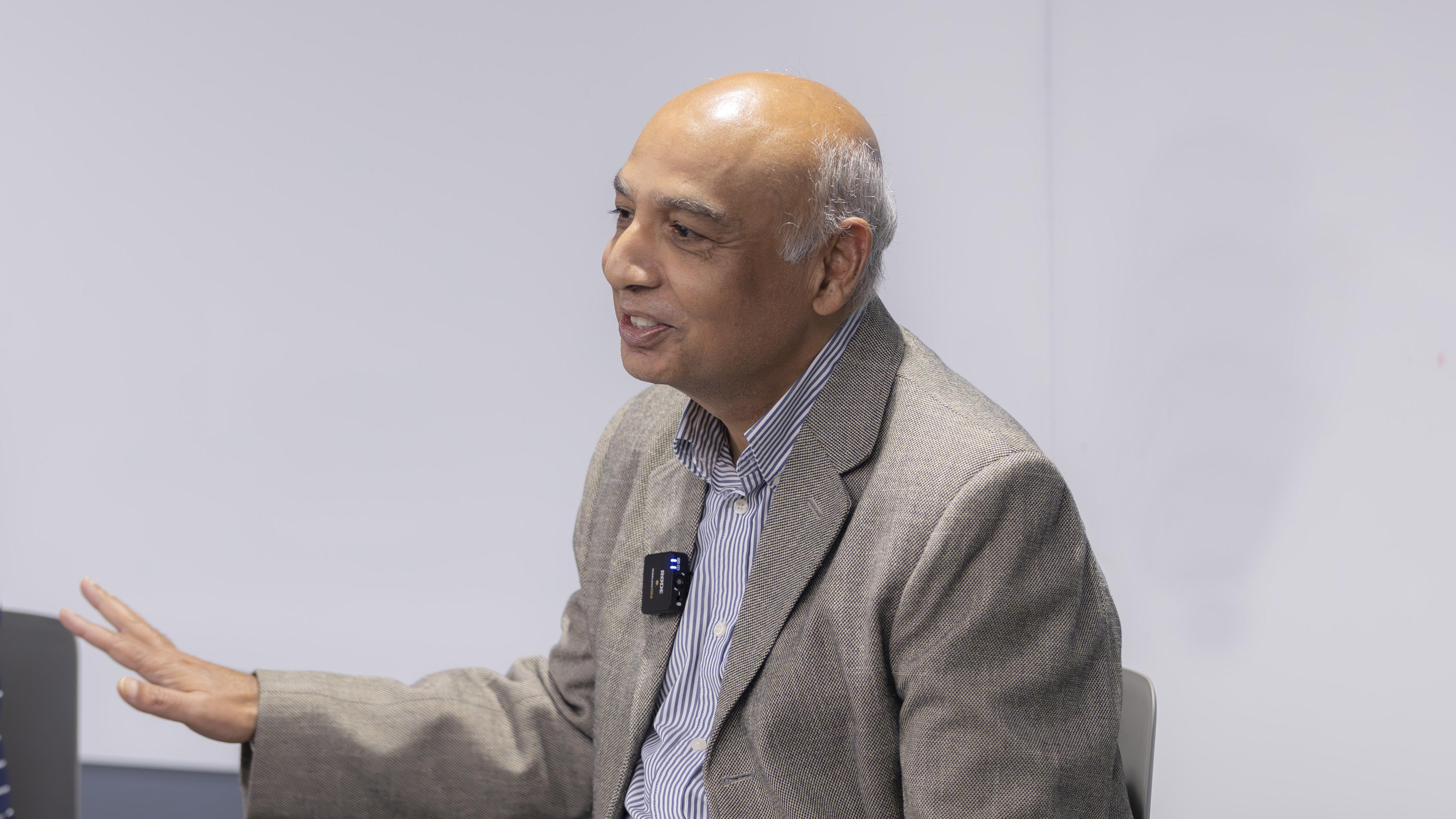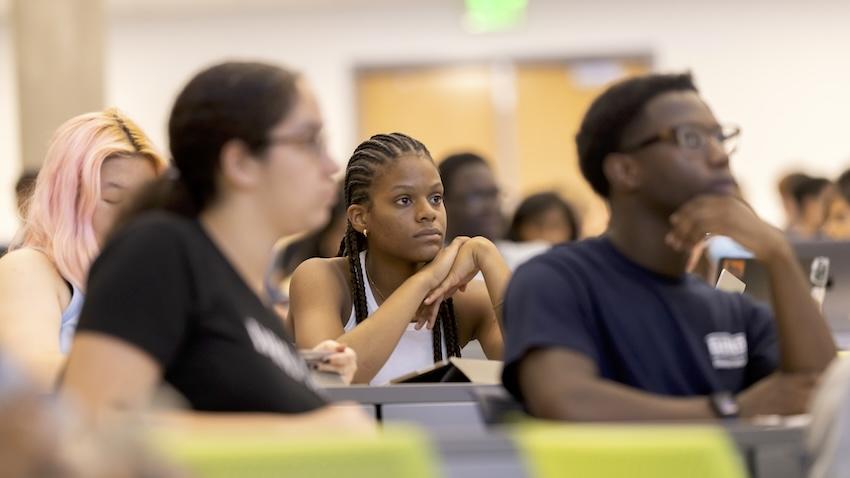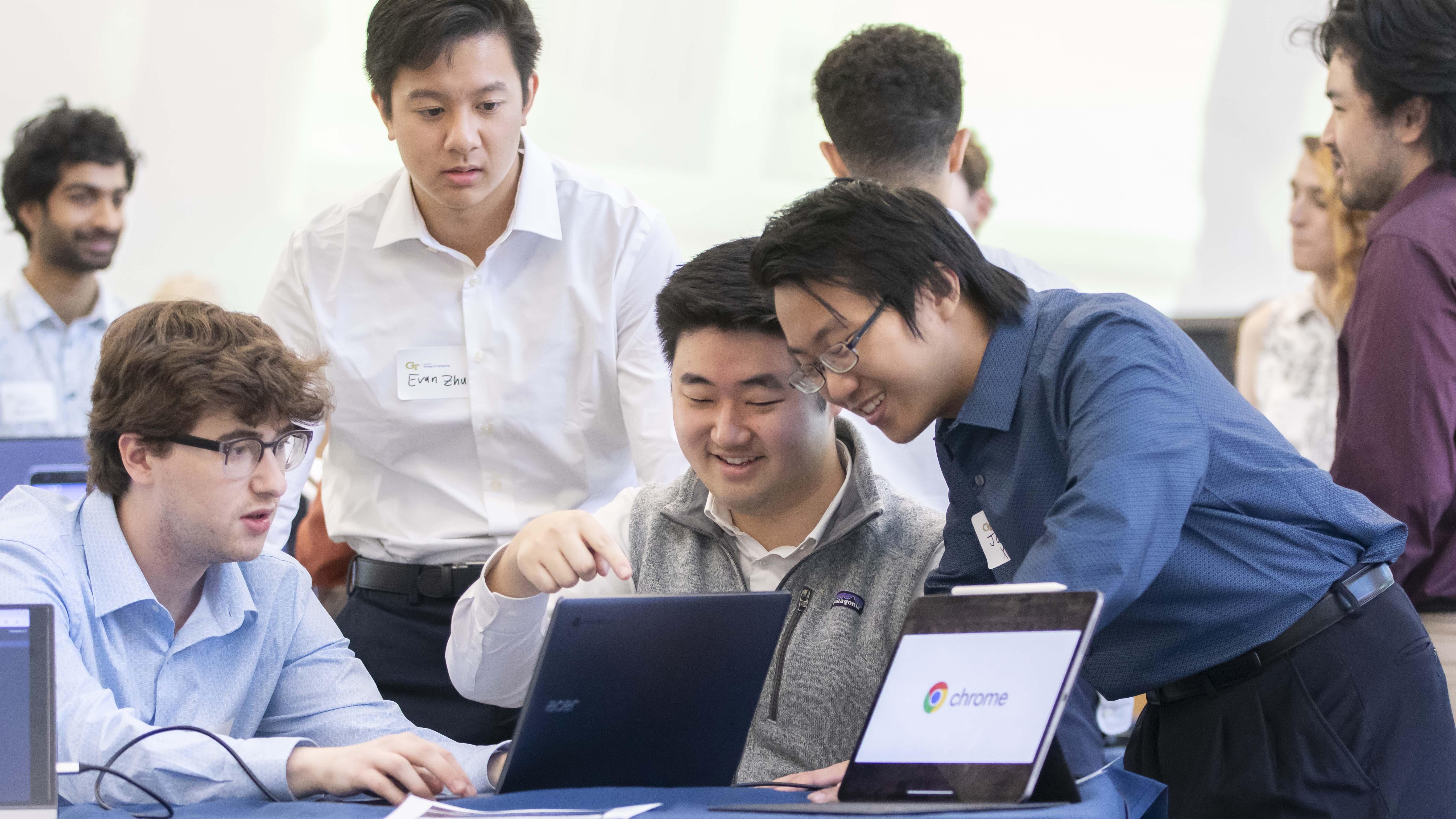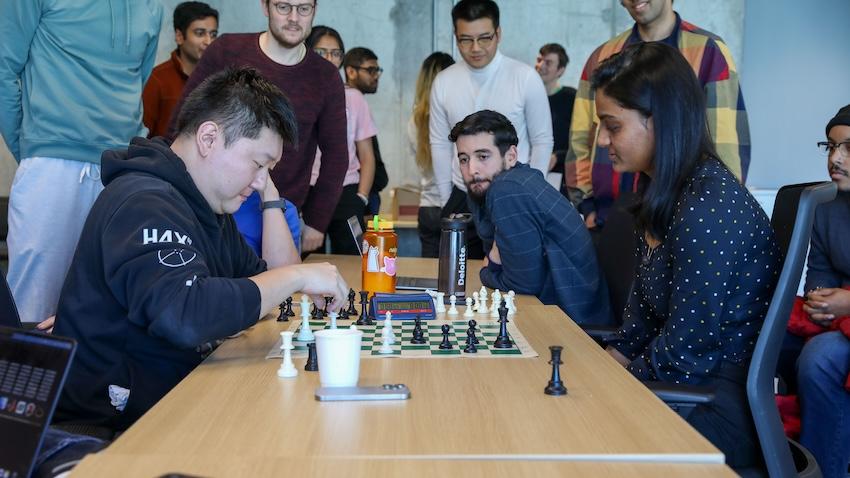
Cybersecurity Student Applies Studies to Win School-Led Chess Tournament
The School of Computational Science and Engineering (CSE) hosted a chess tournament that pitted the minds, not computer software, of Georgia Tech researchers against one another.
In the end, M.S. student Meenakshi Manikandaswamy became the tournament champion on Feb. 21 by defeating Ph.D. candidate Ziyi (Francis) Yin. M.S. student Anisha Tripathi received the tournament’s best new player award.
“I am thrilled to be this tournament’s champion,” Manikandaswamy said. “I appreciate CSE for organizing this event and giving me the opportunity to participate. The tournament was well run and a fun experience.”

Manikandaswamy studies cybersecurity under Professor Mustaque Ahamad, who holds joint appointments in the School of Computer Science and the School of Cybersecurity and Privacy.
Manikandaswamy’s work is “red team” related. This designation means she takes an adversarial role in her research. She tries to break into systems to help experts understand and strengthen their platforms. Her group is developing a tool that scans for vulnerabilities on websites. The tool is easy to use and does not require computer science or cybersecurity expertise.
“Chess helps to think about the opponent’s point of view, thinking about how they are trying to attack you and how to protect yourself. That definitely applies to my master’s.”
Professor Felix Herrmann advises tournament runner-up Yin. Herrmann is jointly appointment with the Schools of Earth and Atmospheric Sciences, Electrical and Computer Engineering, and CSE.
Together, they develop computational methods for seismic imaging and modeling. Yin studies machine learning approaches to solve inverse problems and quantify uncertainty in geoscientific applications.
“Chess became a habit of ours. I think it’s a great way to take some time to relax and take a break from our research,” Yin said. “It’s a game that unites us CSE students so that we learn about each other as people and become close friends, not just colleagues.”
Manikandaswamy defeated M.S. student Aditya Kane and Yin defeated M.S. student Karan Nahar to reach the finals.
The tournament began in January, opening with four weekly matches of round-robin play. These results determined the seeding for the semifinals.
The chess tournament’s starting field of 25 players included School of CSE students, faculty, and staff members.
The CSE Graduate Student Association (GSA) organized and managed the tournament. To encourage participation, CSE GSA solicited participation outside the School of CSE. This included the Georgia Tech Chess Club, which was how Manikandaswamy learned about the tournament.
“I think this tournament went really well, I was surprised with how much interest there is in chess across the school,” said Ph.D. student Aranya Banerjee, president of CSE GSA. “We definitely hope to do something like this again in the future.”
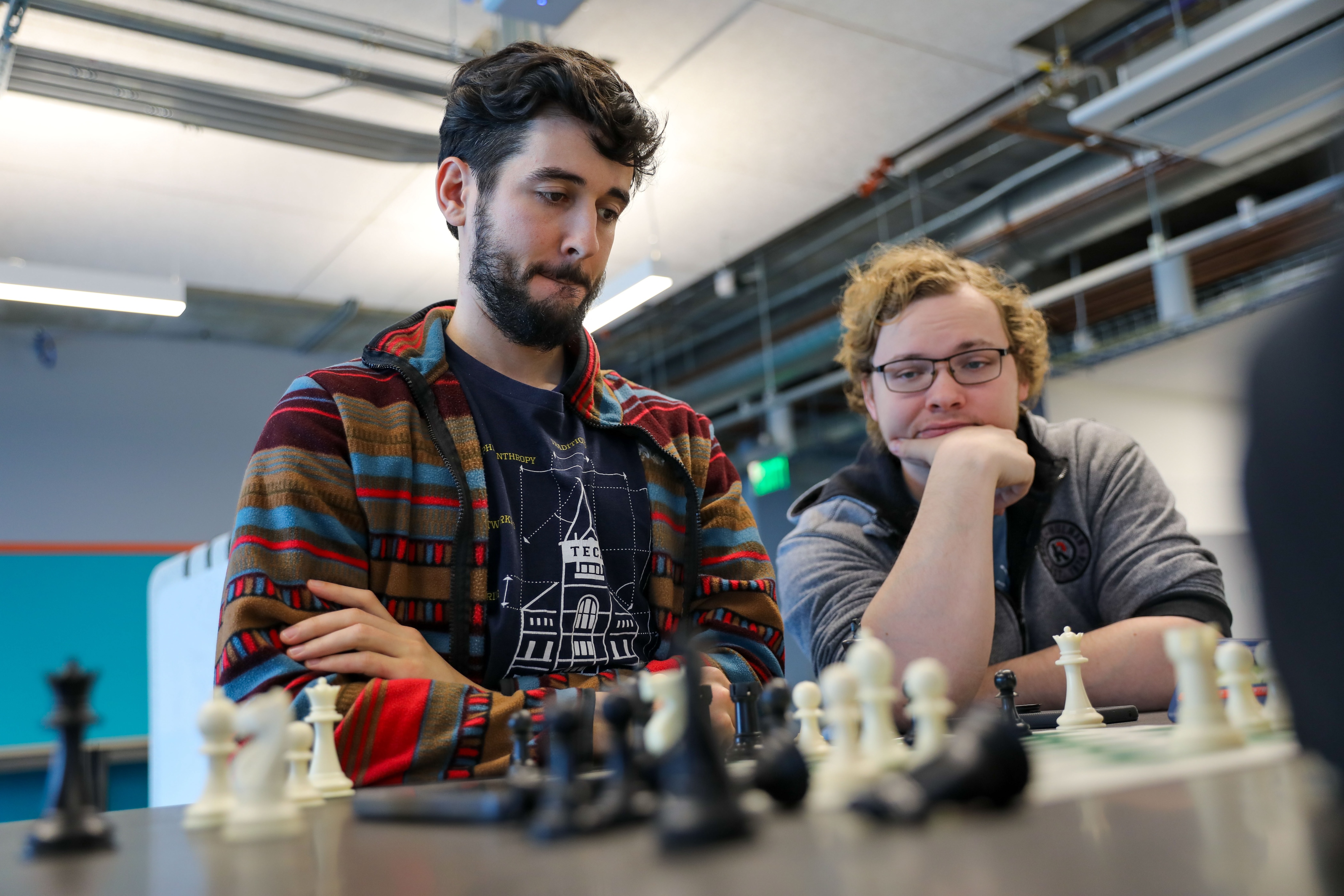
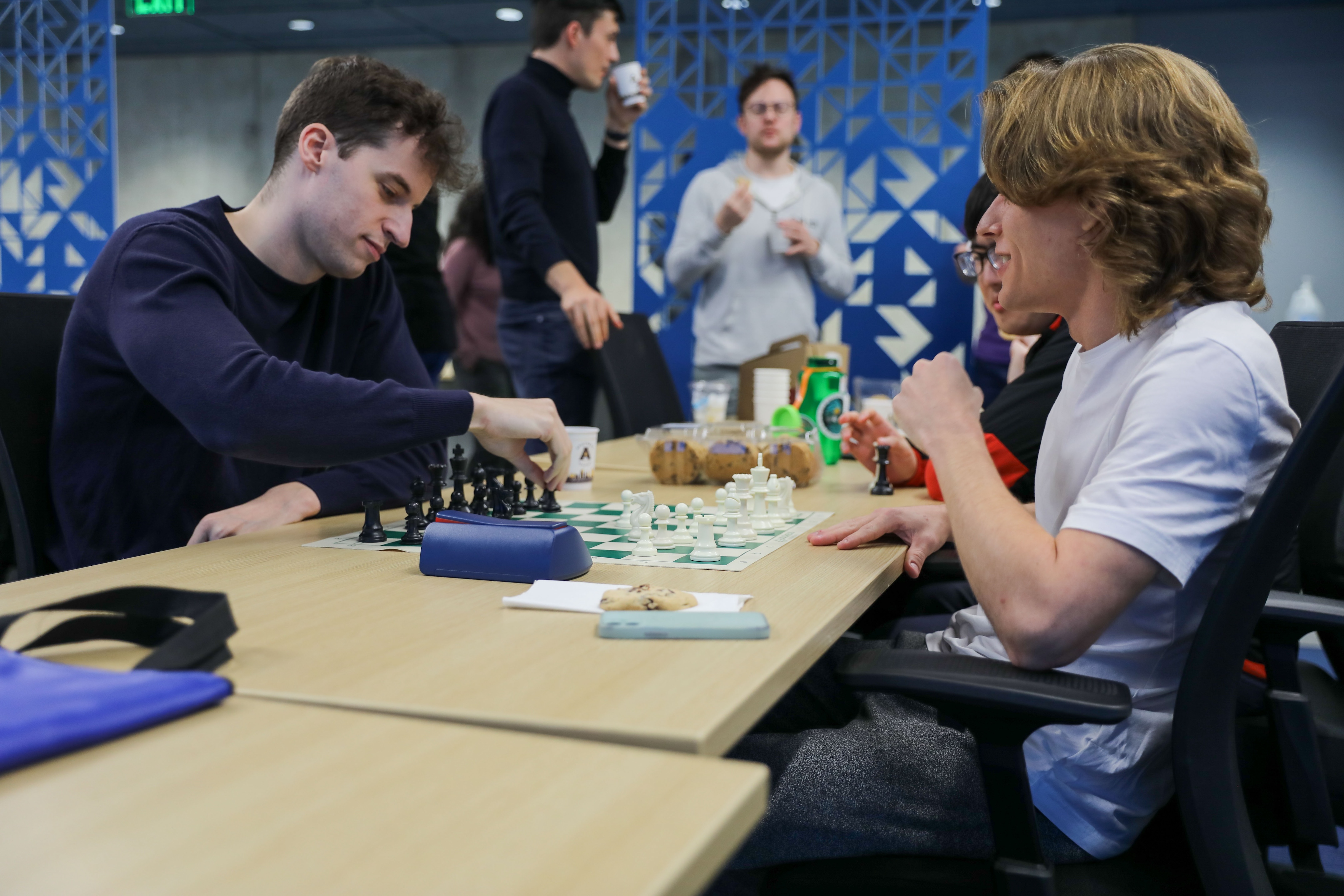
We are thrilled to announce Vivek Sarkar as the new Dean of the College of Computing at Georgia Tech! With a distinguished career spanning academia and industry, Sarkar's leadership promises to elevate our community to new heights. https://t.co/2mX5D46cJz pic.twitter.com/LxpLTCXWZV
— Georgia Tech Computing (@gtcomputing) April 12, 2024
@GeorgiaTech's dedication to excellence in computer science (CS) has been recognized once again, with the latest U.S. News and World Report rankings unveiling the institution at 7th place overall for graduate CS studies.https://t.co/qavNUSTb7n pic.twitter.com/BcGyGBQld8
— Georgia Tech Computing (@gtcomputing) April 10, 2024
